Page 8 of 9
7. Non-Topographic Points
Some data points should not be included in the TIN because they do no affect terrain configuration. These points are collected primarily for planimetric purposes - horizontal location. A good example is a fire hydrant. The top of the hydrant is measured to establish its horizontal location and map an underground water line.
Figure E-31 shows five data points, four which are ground points, the fifth a fire hydrant top.
 |
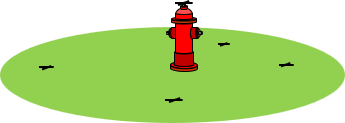 |
| (a) Top | (b) Perspective |
| Figure E-31 Five Data Points |
|
Figure E-32 shows a TIN which includes the hydrant.
 |
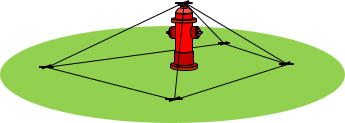 |
| (a) Top | (b) Perspective |
| Figure E-32 TIN With All Points |
|
Because the hydrant is part of the TIN, contours are created towards its top, Figure E-33.
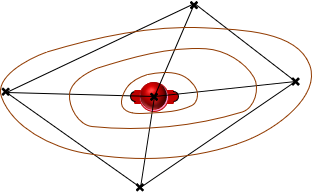 |
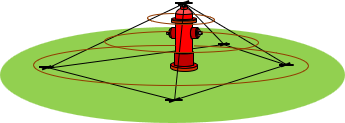 |
| (a) Top | (b) Perspective |
| Figure E-33 Phantom Contours |
|
These are phantom contours because they do not really exist.
The hydrant should not be included in the TIN, Figure E-34, to prevent it affecting the terrain model.
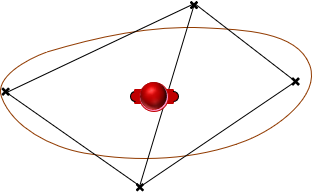 |
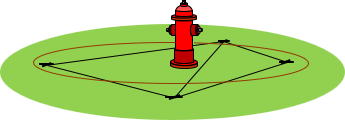 |
| (a) Top | (b) Perspective |
| Figure E-34 Fire Hydrant Exclusion |
|